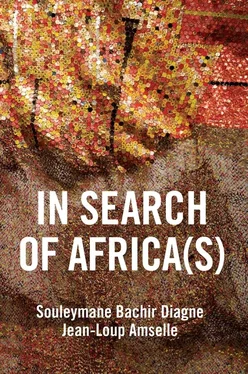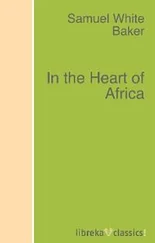So I do not think it is relevant to ‘provincialize Europe’, as Dipesh Chakrabarty calls on us to do, turning it into just one more cultural area, as this would result in a formatting of the world as so many cultural areas impervious to one other. 41In my opinion, it is the quest for commonalities which must prevail over the affirmation of differences.
In L’Occident décroché , I analyse postcolonialism as a critical trend led by Indian, African and Latin American thinkers. These thinkers undermine the legacy of colonial domination in the kinds of knowledge constructed by the social sciences concerning dominated societies. In that work, I undertake a critical presentation of this trend of thought, as well as the forces contesting the West. While exposing the arguments and the pathways of this movement, I try to show how some of these writers incline towards forms of primitivism and cultural essentialism, sometimes taking over colonial stigmas while attempting to reverse their meaning. Thus, postcolonialism seems to me to constitute, by means of a new ruse of reason, the surest way of establishing the hegemony of the West even as it seems to aim at reversing it. That is why L’Occident décroché cannot in any way, pace Diagne, be equated with defending the idea that ‘the West is […] naturally the place of the universal’. Diagne also describes me as ‘paranoid’ and believes that I am ‘tilting against windmills’, but I could gently return the compliment. 42Nor am I ‘nostalgic for a universal that really existed and is threatened by postcoloniality’; 43my main aim is to affirm that there is a possibility of communication between cultures, or, rather, as all my works (based on fieldwork) strive to show, that it is not relevant to take every culture into consideration when trying to understand the history of humankind and that we must start from ‘chains of societies’ or branching ‘connections’ to show that local identities do not exist and never have. 44
Therefore, in the final analysis, the demand made by postcolonial thinkers that Europe consider itself as a cultural area radically different from other cultural areas cannot fail to satisfy the European far right, which endeavours to seek exclusively Christian roots for this continent by ostentatiously ignoring Jewish, Muslim and Roma contributions. By criticizing universalism as ‘White’, as the Indigenous of the Republic do, 45or by endeavouring to ‘provincialize Europe’, postcolonial thinkers and their decolonial successors are forgetting that Europe is merely a political and intellectual construction aimed at excluding from its space everything it considers as not (or no longer) part of itself (i.e. non-Christians) and as shunning all the continents (the migrants) from which it seeks to preserve itself. To define Europe as a distinct cultural area is therefore to render a great service to all European nationalists since this is the very idea they strive to promote. Just as the thinkers of the far right have as their stock in trade the idea of an eternal France, England or Germany, an intangible Europe of the nations, so they need to believe in the ‘African’ (who has not fully entered history) as well as in the durability of ethnic groups across the different precolonial, colonial and postcolonial periods in the history of Africa.
In short, the essential question here is that of difference: the difference between the African and European continents, and the difference between the many African ethnic groups and cultures – a problematic which ultimately forms the basis of the theme of translation which lies at the centre of Diagne’s thought.
1 1. Jean-Loup Amselle, Vers un multiculturalisme français: l’empire de la coutume (Paris: Flammarion, 2010; first published in 1996).
2 2. Jean-Loup Amselle, ‘L’excision et l’homosexualité: enjeux politiques au Mali’, Les Temps modernes, no. 698, April–June 2018, pp. 3–19.
3 3. Mehdi Ba, ‘Homosexualité: à Dakar, Obama tente le panier mais se fait contrer’, Jeune Afrique, 28 June 2013, http://www.jeuneafrique.com/169948/politique/homosexualit-dakar-obama-tente-le-panier-mais-se-fait-contrer/.
4 4. Joseph A. Massad, Desiring Arabs (Chicago: University of Chicago Press, 2007); Françoise Vergès, ‘Féminismes décoloniaux, justice sociale, anti-impérialisme’, in Zahra Ali and Sonia Dayan-Herzbrun (eds), Pluriversalisme décolonial, Tumultes, 48 (Paris: Kimé, 2017), p. 159.
5 5. Frédéric Lagrange, lecture on ‘Homoérotisme et homosexualités dans les sociétés arabes, des âges prémodernes à l’ère contemporaine’ (‘Homoeroticism and Homosexuality in Arab Societies, from Premodern Ages to the Contemporary Era’), IISMM, EHESS, 6 June 2017. For a critique of Massad’s ideas, see also ‘Gay Imperialism: Postcolonial Particularity’, https://thecharnelhouse.org/2016/05/15/gay-imperialism-universality-particularity-and-capitalist-civilization/.
6 6. Jules Ferry, ‘Les fondements de la politique coloniale (28 juillet 1885)’, http://www2.assemblee-nationale.fr/decouvrir-l-assemblee/histoire/grands-moments-d-eloquence/jules-ferry-28-juillet-1885.
7 7. This ambiguity is particularly apparent with regard to the State of Israel, which can be seen as both an exemplary democracy and a racist state. See Zeev Sternhell, ‘En Isräel pousse un racisme proche du nazisme à ses débuts’, Le Monde, 18 February 2018, https://www.lemonde.fr/idees/article/2018/02/18/zeev-sternhell-en-israel-pousse-un-racisme-proche-du-nazisme-a-ses-debuts_5258673_3232.html.
8 8. Ali and Dayan-Herzbrun (eds), Pluriversalisme décolonial.
9 9. Jean-Loup Amselle, L’Occident décroché: enquête sur les postcolonialismes (Paris: Fayard/Pluriel, 2011; first published in 2008), chap. 6, ‘La voix des “sans-voix”’.
10 10. Vivek Chibber, ‘L’universalisme, une arme pour la gauche’, Le Monde diplomatique, May 2014, https://www.monde-diplomatique.fr/2014/05/CHIBBER/50380; Vivek Chibber, ‘Postcolonialism vs Marxism’, https://www.youtube.com/watch?v=r1tvVTfeikg; see also Vasant Kaiwar, L’Orient postcolonial: sur la ‘provincialisation’ de l’Europe et la théorie postcoloniale (Paris: Syllepse, Mille marxismes, 2013).
11 11. Nivedita Majumdar, ‘Silencing the Subaltern’, Catalyst Journal, vol. 1, no. 1, Spring 2017, https://catalyst-journal.com/vol1/no1/silencing-the-subaltern.
12 12. Kwame Anthony Appiah, Cosmopolitanism: Ethics in a World of Strangers (New York: W. W. Norton & Co. Inc., 2006); The Ethics of Identity (Princeton, NJ: Princeton University Press, 2005).
13 13. An ethnic group in south Ghana.
14 14. Kwasi Wiredu,Cultural Universals and Particulars: An African Perspective (Bloomington: Indiana University Press, 1996), chap. 7, pp. 137–47.
15 15. See chap. 7below, pp. 60–6.
16 16. Maurice Merleau-Ponty, ‘Rapport de Maurice Merleau-Ponty pour la création d’une chaire d’Anthropologie sociale’ (1958), La Lettre du Collège de France, special issue no. 2, 2008, https://journals.openedition.org/lettre-cdf/229.
17 17. Maurice Merleau-Ponty, Phenomenology of Perception, translated by Donald A. Landes, new edn (London: Routledge, 2012). See also Claude Lévi-Strauss, The Elementary Structures of Kinship, edited by Rodney Needham; translated by James Harle Bell, John Richard von Sturmer and Rodney Needham, revised edn (London: Social Science Paperbacks in association with Eyre & Spottiswoode, 1970).
18 18. Merleau-Ponty, ‘Rapport de Maurice Merleau-Ponty’, para. 13.
19 19. Claude Lévi-Strauss, The Savage Mind, new edn (London: Weidenfeld & Nicolson, 1974).
20 20. Maurice Merleau-Ponty, Signs, translated by Richard C. McCleary (Evanston, IL: Northwestern University Press, 1964).
Читать дальше












